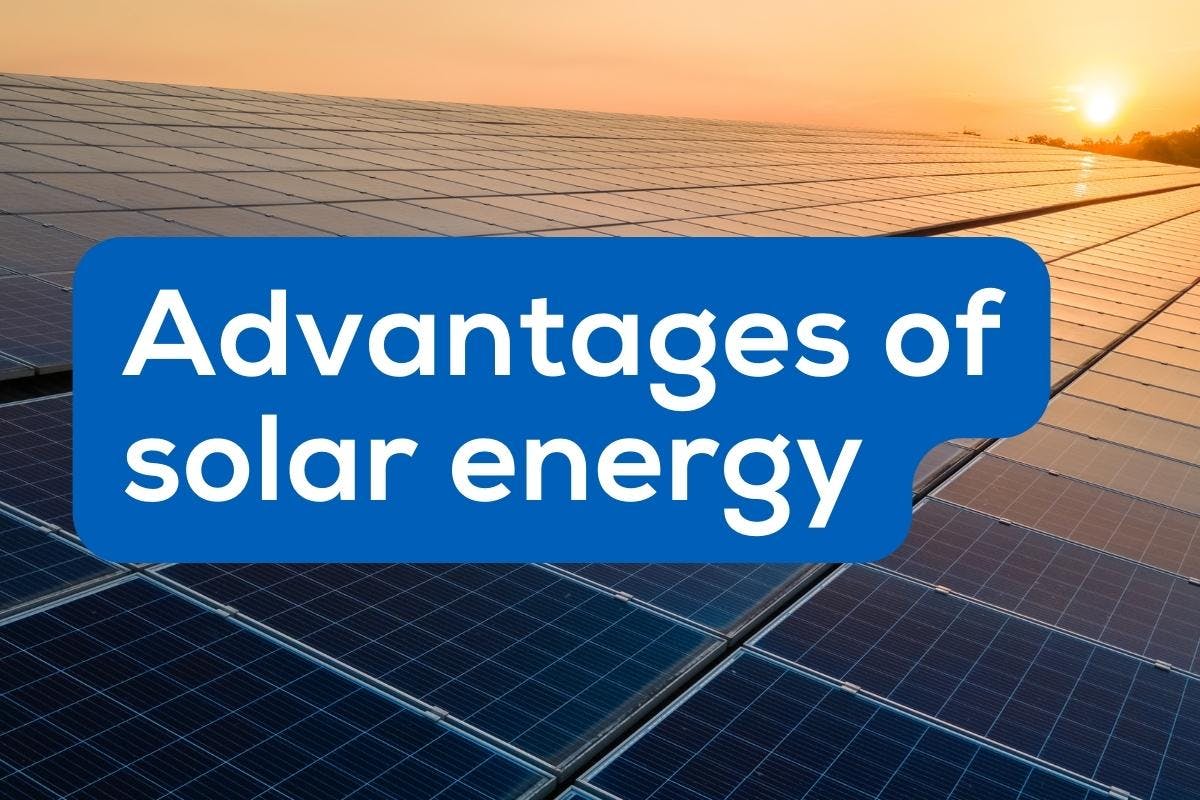Make the Move with Simply Solar Illinois – Solar Panels You Can Rely On
Make the Move with Simply Solar Illinois – Solar Panels You Can Rely On
Blog Article
How Solar Power Can Help You Save Money and Reduce Your Carbon Footprint
The integration of solar power into your power portfolio offers a compelling opportunity for both economic savings and ecological stewardship. By utilizing the sun's energy, homeowners can considerably minimize their regular monthly energy costs while also safeguarding against the changability of future energy prices. The change to solar adds to a marked reduction in carbon exhausts, lining up personal money with more comprehensive environmental goals. As numerous federal government motivations appear, the question emerges: just how can one properly navigate the first investments and continuous benefits of solar technology to make the most of both financial and environmental gains?
Comprehending Solar Energy Cost Savings
While the transition to solar energy often involves an initial investment, comprehending solar power financial savings is critical for homeowners and companies alike. Solar energy systems can considerably reduce electricity expenses by harnessing the sunlight's power, translating into significant long-term monetary benefits.
Additionally, solar power systems might receive various financial incentives, consisting of tax obligation credit ratings and rebates, further boosting their cost-effectiveness. The schedule of internet metering enables users to sell excess power back to the grid, developing an added income stream. These elements contribute to the total financial savings related to solar energy.

In addition to guide monetary cost savings, solar power uses the included advantage of increasing residential property worth. Houses geared up with solar panels are often much more eye-catching to buyers, as they promise lower energy costs - Simply Solar Illinois. Understanding these elements is crucial for anybody thinking about solar power, as it highlights not just the potential economic gains, yet likewise the more comprehensive ecological and financial benefits of embracing sustainable energy services
Initial Costs vs. Long-Term Conveniences
When reviewing solar energy, it is essential to weigh the initial costs versus the long-lasting benefits. The ahead of time financial investment for photovoltaic panels, installation, and related tools can be considerable, commonly varying from $15,000 to $30,000, relying on the system dimension and home energy needs. This first expenditure may hinder some house owners; however, it is crucial to take into consideration the possible savings gradually.
When installed, solar energy systems can dramatically minimize or perhaps get rid of monthly power expenses, leading to substantial long-lasting economic benefits. Researches indicate that house owners can save anywhere from $10,000 to $30,000 over the life-span of their solar system, typically 25 years. Furthermore, several states provide incentives, tax credit scores, and discounts that can offset preliminary prices, making solar more obtainable.

Lowering Your Carbon Footprint
Lowering your carbon footprint is a crucial factor to consider in today's ecologically aware society, and taking on solar power is just one of the most efficient techniques to attain this goal. Solar power is a tidy, renewable energy that considerably diminishes reliance on nonrenewable fuel sources, which are major contributors to greenhouse gas discharges.

Moreover, the widespread fostering of solar innovation encourages the advancement of green jobs and sustains advancements in energy storage space and efficiency. The even more individuals and companies buy solar energy, the higher the cumulative reduction in carbon exhausts, promoting a cleaner atmosphere for future generations.
Government Rewards and Discounts
Embracing solar energy not only benefits the atmosphere but can likewise lead to considerable economic savings, particularly with the availability of federal government motivations and rebates. Different government, state, and local programs are created to encourage homeowners and services to spend in solar energy systems, making the shift extra economical.
Among the most popular rewards is the Federal Investment Tax Obligation Credit Scores (ITC), which allows planetary system proprietors to deduct a substantial portion of the installment prices from their government taxes. This reward has actually been crucial in decreasing the upfront expenditures related to solar power systems. Furthermore, several states supply their very own tax credit ratings, grants, and refunds that can even more improve savings.
Additionally, some city governments provide building tax obligation exemptions for solar installments, making certain that homeowners do not encounter raised residential or commercial property taxes as a Resources result of their sustainable energy investments. Energy firms might also supply incentives, consisting of web metering and feed-in tariffs, which allow solar power individuals to offer excess power back to the grid.
Choosing the Right Planetary System
Picking the proper solar system is important for maximizing power performance and monetary benefits. The choice depends upon a number of factors, consisting of power needs, spending plan, and offered space. Homeowners must begin by evaluating their electricity intake to identify the system dimension required for optimum try here performance.
Following, take into consideration the different sorts of solar innovations readily available. Simply Solar Illinois. Solar (PV) panels are one of the most common, transforming sunlight straight right into electrical energy, while solar thermal systems concentrate on home heating water. Each type has distinct advantages relying on individual needs
Budget factors to consider are likewise paramount. First installment costs can differ significantly, so it's vital to contrast quotes from multiple providers and check out funding options. Federal government rewards and discounts can even more minimize the economic concern, making planetary systems more available.
Final Thought
In summary, solar energy presents a practical remedy for achieving considerable expense savings while concurrently decreasing carbon emissions. The initial financial investment, though considerable, yields substantial long-term monetary advantages, with potential financial savings varying from $10,000 to $30,000 over 25 years. The ecological benefits of solar power add to lasting techniques essential for combating climate adjustment. Federal government motivations boost the usefulness of solar technology adoption, motivating a shift in the direction of a cleaner, a lot more financially effective from this source energy source.
Report this page